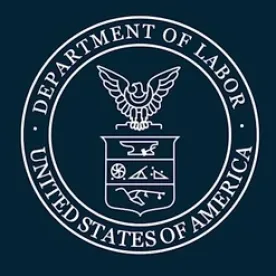The U.S. Department of Labor’s Wage and Hour Division (WHD) issued two guidance memos on December 29, 2020 aimed at addressing several pandemic-related compliance challenges faced by employers. The first memo discusses when the WHD will consider electronic notices sufficient to satisfy the posting requirements under several statutes, including the Fair Labor Standards Act (FLSA) and the Family Medical Leave Act (FMLA). The second memo sets forth the requirements for a tele-medicine appointment to qualify as an “in-person” visit for purposes of establishing a serious health condition under the FMLA.
Electronic Notices
Like many enactments regulating the workplace, the FLSA and FMLA require employers to continuously post notices explaining employees’ statutory rights in a conspicuous location in the workplace, typically a break room or other common area where employees tend to gather. With many employers shifting some or all their operations to employee’s homes, the WHD issued guidance advising employers on the requirements for electronic posting of the required notices.
For the FLSA, an employer can use electronic-only postings if:
-
All employees exclusively work remotely;
-
All employees customarily receive information from the employer electronically; and
-
All employees are able to readily access the electronic posting at all times.
If an employer has a hybrid on-side/remote workforce, WHD encourages the use of electronic and physical postings.
For the FMLA, WHD will permit electronic posting where the notices are placed on an internal or external website accessible to all employees and applicants for employment. Accessible in this context means the electronic posting is as effective as hard copy, meaning employees are able to see the posting at any time without asking for permission to access the posting.
Somewhat paradoxically, the WHD does not consider electronic posting on an intranet or internet page to be effective if the employer does not customarily post such notices online. Accordingly, if an employer wants to migrate their postings to an electronic method, employees would need to receive adequate notice of the change. The WHD likens posting without such notice to posting a hard copy notice in a custodial closet or little-visited basement where it would not be readily visible.
Telemedicine Visits and the FMLA
One way for an employee to qualify for FMLA leave to care for his or her own serious health condition or the serious health condition of a family member is to show continuing treatment by a health care provider. The FMLA regulations specify that “treatment” means an “in-person” visit to a healthcare provider. The WHD stated in 2008 that treatment means examination, evaluation, or specific treatment, but does not include phone calls, letters, emails, or text messages.
In response to the COVID-19 pandemic, the WHD issued a FAQ on July 20, 2020 stating that it would consider telemedicine visits to be in-person visits for the purposes of establishing a serious health condition under the FMLA until December 31, 2020, provided the following criteria are met:
-
The examination, evaluation, or treatment is provided by a health care provider;
-
The telemedicine visit is generally permitted and accepted by state licensing authorities; and
-
The telemedicine visit is performed by video conference.
In light of the fact that telemedicine has expanded the availability of healthcare to vulnerable and remotely located patients, and has reduced potential COVID infections by limiting the number of people physically present in healthcare facilities, the WHD used the December 29 memo to announce that telemedicine visits will be deemed compliant beyond December 31, 2020 provided the above criteria are satisfied.






 />i
/>i

